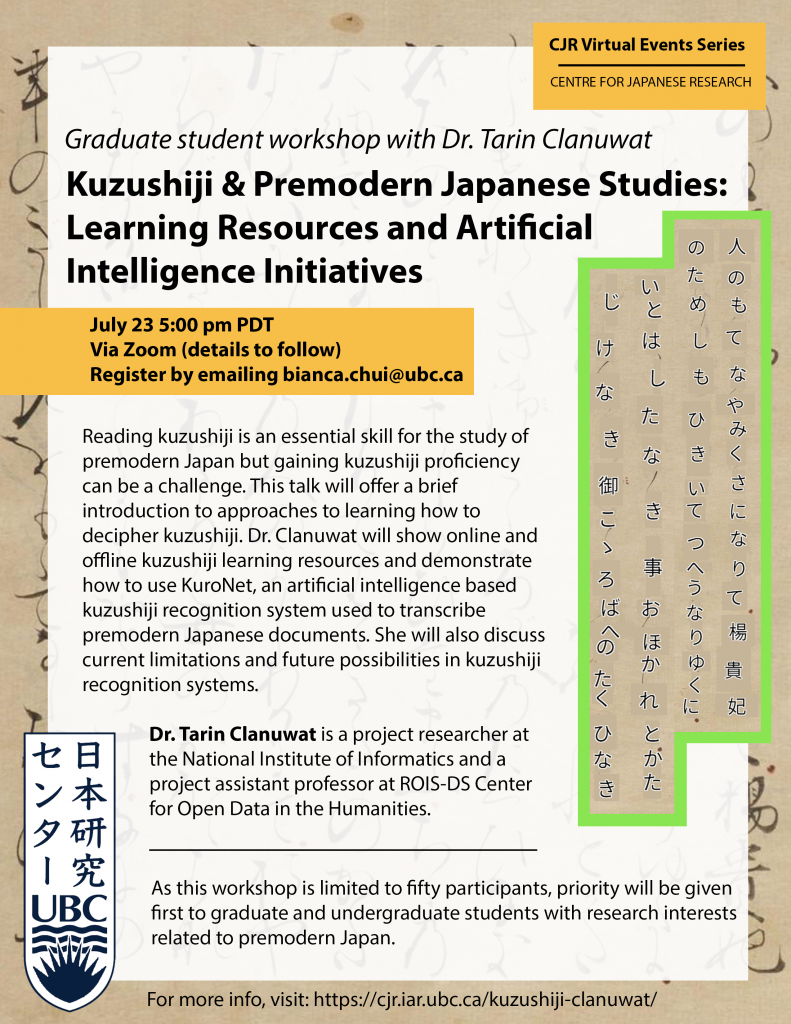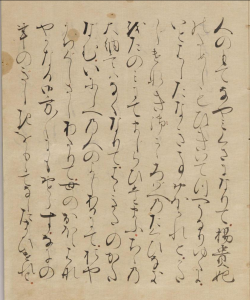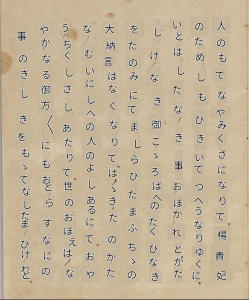Kuzushiji and Premodern Japanese Studies: Learning Resources and Artificial Intelligence Initiatives
Graduate student workshop with Dr. Tarin Clanuwat
Click here for the List of Resources. Please feel free to share the video and resource list with others, including on social media.

When: July 23 5:00 pm PDT
Where: Zoom (details to follow)
How: Register by emailing bianca.chui@ubc.ca
Reading kuzushiji is an essential skill for the study of premodern Japan but gaining kuzushiji proficiency can be a challenge. This talk will offer a brief introduction to approaches to learning how to decipher kuzushiji. Dr. Clanuwat will show online and offline kuzushiji learning resources and demonstrate how to use KuroNet, an artificial intelligence based kuzushiji recognition system used to transcribe premodern Japanese documents. She will also discuss current limitations and future possibilities in kuzushiji recognition systems.

A manuscript of The Tale of Genji.

Transcription of the manuscript above using the online KuroNet service which will be demonstrated during the talk.
Dr. Tarin Clanuwat is a project researcher at the National Institute of Informatics and a project assistant professor at ROIS-DS Center for Open Data in the Humanities. She received her PhD from the Graduate school of Letters Arts and Sciences at Waseda University, where she specialized in Kamakura-era Tale of Genji commentaries. In 2018, she developed an AI-based kuzushiji recognition model called KuroNet. In 2019, she hosted a Kaggle machine learning competition for kuzushiji recognition which attracted over 300 machine learning researchers and engineers from around the world. Her AI and kuzushiji research won the Information Processing Society of Japan Yamashita Memorial Research Award.
This workshop is limited to fifty participants and is aimed at graduate and undergraduate students with research interests related to premodern Japan. Priority will be given first to students and then to postdocs and junior scholars but others are welcome to register and will be notified if space allows. We hope to make much of the session publicly accessible following the event.
Questions? Contact Dr. Christina Laffin (University of British Columbia) at Christina.Laffin@ubc.ca